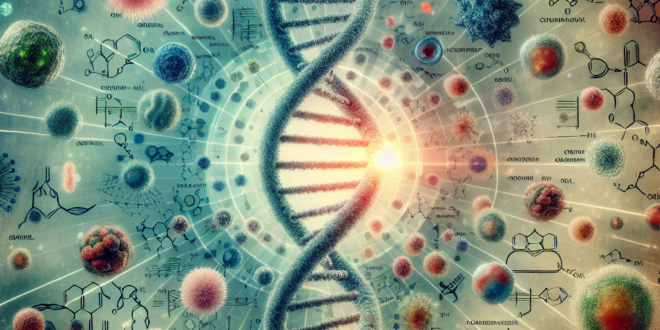Cancer is a complex and multifaceted disease that is influenced by a variety of factors, including genetics. While environmental factors, such as smoking and diet, have long been known to contribute to the development of cancer, researchers have increasingly focused on the role that genetics play in determining an individual’s risk of developing the disease.
Genetics can play a significant role in cancer characteristics, influencing everything from the type of cancer a person develops to how aggressive the disease may be. Mutations in specific genes can increase a person’s likelihood of developing certain types of cancer, such as BRCA1 and BRCA2 mutations, which are associated with an increased risk of breast and ovarian cancer. Additionally, certain genetic mutations can affect how quickly a cancer grows and spreads, potentially affecting the prognosis and treatment options available to a patient.
In recent years, advances in genetic testing have allowed healthcare providers to better understand the genetic makeup of a patient’s cancer, allowing for more personalized treatment plans. By analyzing the genetic characteristics of a tumor, doctors can determine the most effective treatment options for an individual patient, including targeted therapies that are designed to specifically target the genetic mutations driving the growth of the cancer.
In addition to helping guide treatment decisions, genetic testing can also provide valuable information about a patient’s risk of developing other cancers in the future. For example, individuals with certain genetic mutations may be at an increased risk of developing multiple types of cancer, making regular screening and preventative measures even more important.
While genetics can play a significant role in cancer characteristics, it is important to remember that not all cancers are genetic in nature. In fact, the majority of cancers are thought to be caused by a combination of genetic and environmental factors, making it important for individuals to work with their healthcare providers to understand their individual risk factors and take steps to reduce their risk of developing cancer.
Overall, genetics play a crucial role in determining the characteristics of cancer, from the type of cancer a person develops to how aggressive the disease may be. By understanding the genetic makeup of a tumor, doctors can tailor treatment plans to the individual patient, improving outcomes and quality of life for those affected by cancer. As our understanding of genetics and cancer continues to evolve, we can expect to see even greater advancements in personalized cancer care.

 Daily Horoscope Weekly Horoscope Monthly Forecast Love Career Life Astrology
Daily Horoscope Weekly Horoscope Monthly Forecast Love Career Life Astrology




